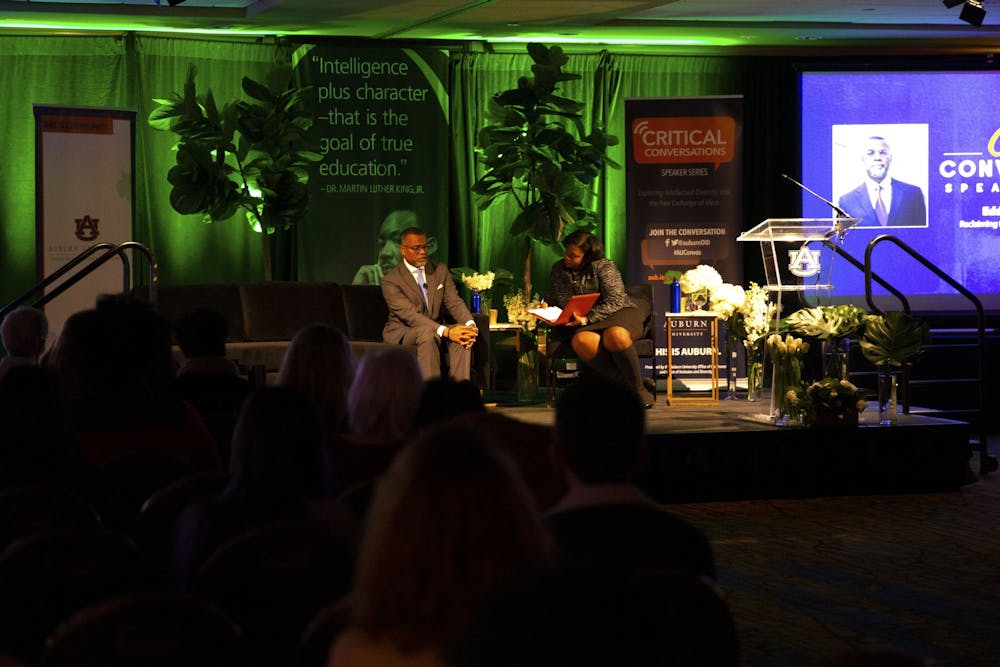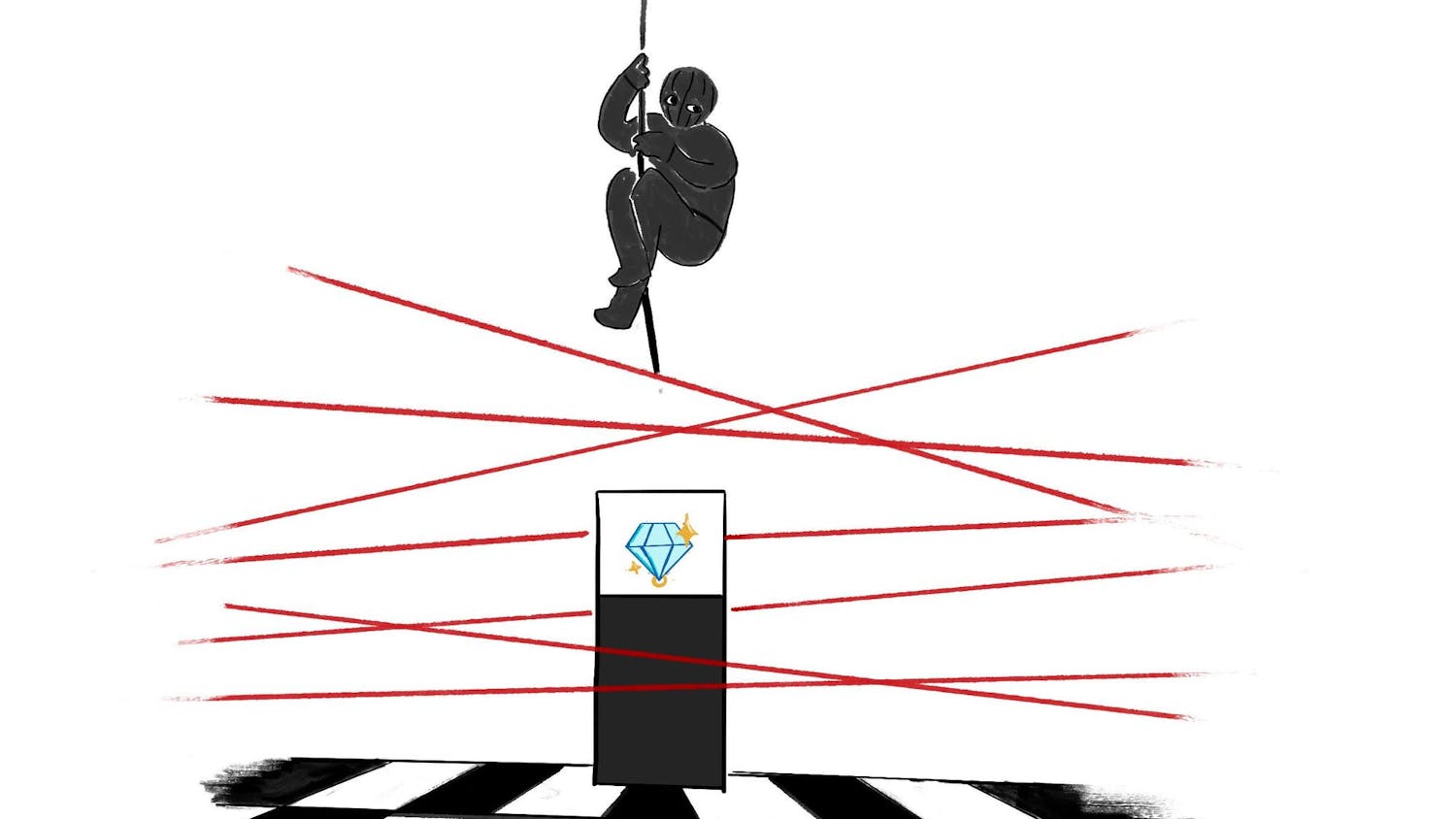The University’s Office of Inclusion and Diversity continued its Critical Conversations Speaker Series on Jan. 21. Featured speaker Eddie Glaude, chair of Princeton University’s Department of African American studies, spoke to attendees at The Hotel at Auburn University and Dixon Conference Center.
Glaude discussed the vision Martin Luther King Jr. had for the future and how the students and faculty of this generation can succeed in obtaining it. This particular speech was titled, “Reclaiming the Dream: A New Vision for the Future.”
“Our society requires an honest reckoning,” said Glaude. “This requires an acknowledgement of what we have done. This begins with the South. There is so much blood in our soil, this region is key to the country’s salvation. Much of our success has depended upon the exploitation of a particular group of people. We have to figure out how we can do otherwise.”
“Society believes some people are disposable,” Glaude said. “Dr. King understood each of us is a child of God and should be treated as such.”
Glaude said growing up in a working class family with his mother, father and three siblings caused him to become brave and determined, which he credited to his “Mississippi blues ethic.” His mother dropped out of school when she had her first child at an early age. His father finished high school and went into the U.S. Navy to fight in Vietnam.
When Glaude was in fourth grade, his father left a lasting impression that influenced his ideology. One of his teachers singled him out for a certain treatment, and he called her a racist and ran out of the class. He was scared to tell his father, but when he did, his father told him if that situation ever happened again, he should do the same exact thing.
“Dr. King has turned into a political pawn to hide the ugliness of who we are,” Glaude said. “We freeze in 1963, and no one wants to grapple with the King who is killed in the Millenial hotel.”
According to Glaude, King thought racism was a congenital disease that needed mending beyond the desegregation of lunch counters. King knew that America’s economic system exploited racism and various labor groups. King wanted to push in a different direction by making obvious the ties that militarism, imperialism and capitalism all had with racism, Glaude said.
King saw his message get lost in translation to the younger generations of the Civil Rights Movement, Glaude said. His message of love and nonviolence was no longer being followed, and this disturbed him.
Glaude said that during Reconstruction, the role of citizenship was beginning to change in the South. The purpose was to instill an authentic democracy. However, the South instilled ideals such as Jim Crow laws and sharecropping, which he called another form of slavery.
“At the birth of American democracy, a serpent wrapped its grip around the document,” Glaude said. “That serpent is slavery.”
Glaude said he keeps a safe space for all opinions in his classroom. In each argument, there is not just two sides, but a wide space in between the left and right.
Glaude said this often requires education and creating conditions that make it comfortable for students to have their own opinions. It is important for pupils to step into the written work.
“Ideas are like prayers,” Glaude said. “It is that space that takes you out of the nastiness of this world and opens you to the opportunities of life.”
Glaude said Americans can’t tell the truth about their country because people will stop holding it in high esteem — almost as if we need to believe in its good virtue.
Glaude said he comes out of a tradition that had to bear the brunt of these lies. He had to figure out how to tell the story to free people of these demands in his academic role.
“The country has a choice what this world will be,” Glaude said. “We have to finally leave this mess behind. We are at a crossroads, and it is up to us to see where we go from here.”
The floor opened up to the audience for any questions. One audience member asked him how we can use this space to enact his vision of leaving the old world behind.
“These institutions of higher education are under attack by politicians,” Glaude said. “Education is the formation of character and attention. We need to defend these institutions and the teaching of liberal arts vigorously. Higher education allows students to be inquisitive and open-minded.”
Do you like this story? The Plainsman doesn't accept money from tuition or student fees, and we don't charge a subscription fee. But you can donate to support The Plainsman.





